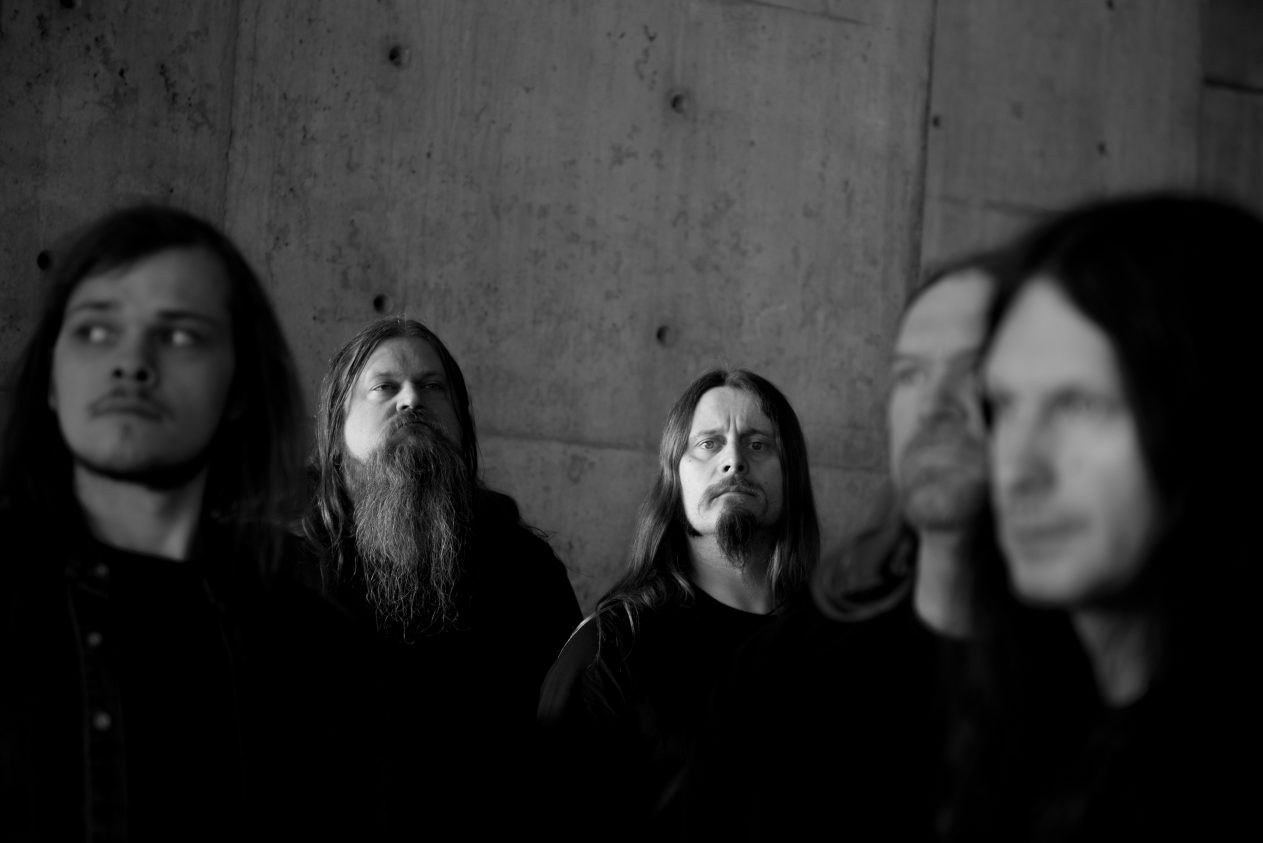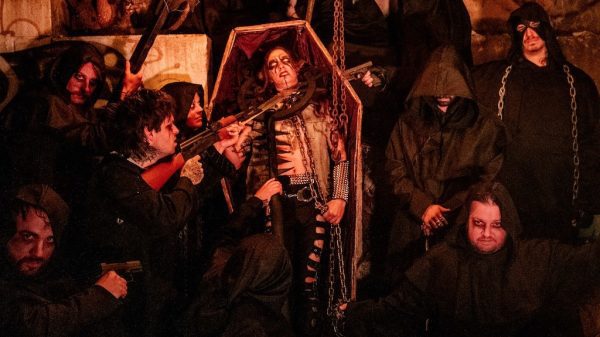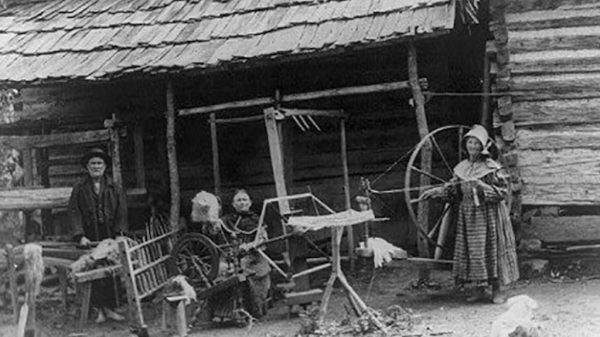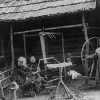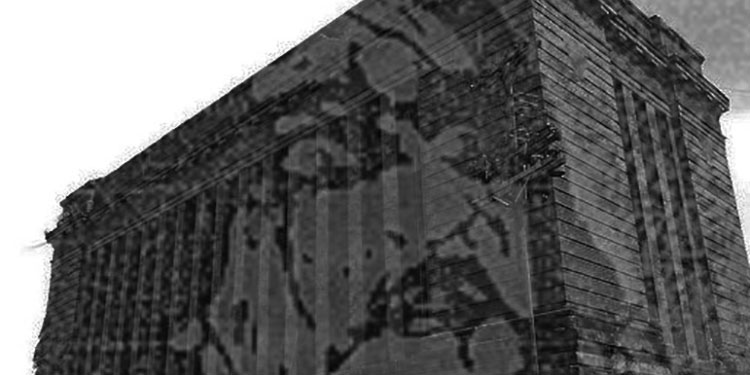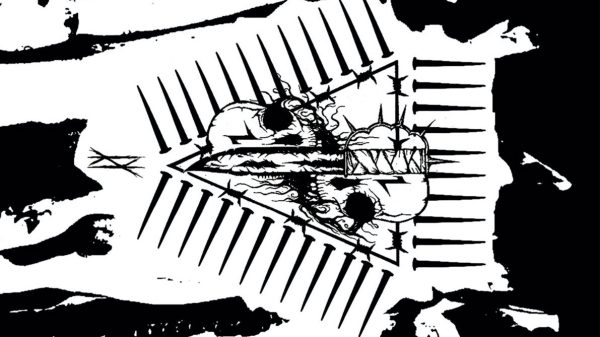Ivar Bjørnson hardly needs an introduction. Founding the legendary black/Viking metal band Enslaved in 1991 alongside Grutle Kjellson at the tender age of 13 years old, the band have since moved from their frosty beginnings to incorporate prog rock, psychedelic, doom, folk and even jazz into their ever evolving sound. All the while they have garnered accolades from critics while still maintaining the respect of many of metal’s most stubborn fan base. Last year the band released their fourteenth studio album E, arguably one of the band’s most refined and best albums to date. It went on to win their fifth Spellemann Award (Norway’s version of the Grammy’s) for best metal album of the year. While the band has celebrated that album’s release live, they have simultaneously taken time to look backwards with anniversary shows, live performances of their genre defining Frost album, and the re-issue of their debut EP Hordanes Land.
As an admitted black metal obsessive, descendent of Vikings and practitioner of the Old Northern Ways, I was more than excited to sit down with Ivar at this year’s Psycho Las Vegas festival to talk at length about a variety of subjects, including revisiting the band’s past, his work with Einar Silvik of Wardruna, the Norse paganism and mythology that inspires Enslaved, as well as the tumultuous politics of our time and how that is playing out in black metal, particularly in regard to the controversy surrounding fellow countryman Ørjan Stedjeberg, a/k/a Taake. In every way Ivar was as thoughtful as he was gracious. It gave me real joy to sit down and revisit this interview while putting it together for public consumption. I hope readers will get as much out of it as I did conducting it.
Jason B: Let me start by asking you about the reissue of your “Hordanes Land” EP. When I think of Enslaved I think of a band that is constantly evolving, constantly moving forward, so I’m curious what it is like for you to now look back and focus on the past?
Ivar: It’s very rewarding experience now that we have done this with the first EP. We did that before with the first album, “Vikingligr Veldi” in 2016. Now we are at the point where we have established our own thing, and I am involved in the record company, By Norse Music, which is releasing these albums, so that feels right. We can put something more into it than a factory, assembly line just reproducing stuff. We can do new liner notes, stuff with the cover artwork. I wouldn’t say we are remastering them, because we are not, but they are being mastered for the first time. Cause back then everything was such a DIY thing and we didn’t have any concept of mastering until a couple of albums into our career. From a musical approach, we are now in the 28thyear of the band and I would say that the last five years have been about reconnecting with the roots. We have been doing these anniversary shows since our 25thyear that have forced us to go back and revisit things, and rehearse and play songs that we haven’t in a while. We have always been a band about working the next record, the next show, and progressing as you say, in a very workaholic style, and now we have been forced to look a bit back and that has really been an eye-opener. We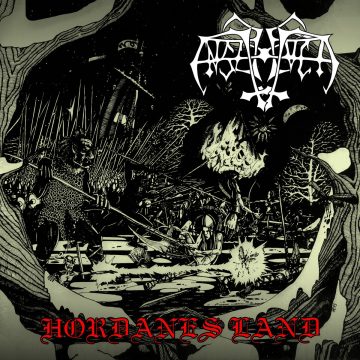 reconnected with ourself in a different way and that has made me realize that things are non-linear. It’s forward, outwards, upwards, whatever, but also it’s falling back into things. Where we are now it has made us reconnect and there are so many things we need from that time period, the energy, the sort of ‘don’t look down’ type of philosophy, to just go for it and don’t be fixated on grown up thinking that stops you from trying something beyond your abilities, which is stupid when it comes to art, because that is exactly what you have to do, you have to go for the belly-flop and just take the pain if you hit the water in the wrong way. It’s going to be rewarding in any case. But also after a quarter of a century you are able to have both a subjective and objective relationship to your own art. You have all of these things attached to your work personally throughout and sometimes things get a bit touchy when people say things like ‘I really prefer your old stuff,’ that can be a bit touchy for a band, but when you pass that 20 year mark you are like ‘sure, sometimes I do that myself!’ because it represents a different age that you lived through, and so it’s oddly both connected and disconnected at the same time.
reconnected with ourself in a different way and that has made me realize that things are non-linear. It’s forward, outwards, upwards, whatever, but also it’s falling back into things. Where we are now it has made us reconnect and there are so many things we need from that time period, the energy, the sort of ‘don’t look down’ type of philosophy, to just go for it and don’t be fixated on grown up thinking that stops you from trying something beyond your abilities, which is stupid when it comes to art, because that is exactly what you have to do, you have to go for the belly-flop and just take the pain if you hit the water in the wrong way. It’s going to be rewarding in any case. But also after a quarter of a century you are able to have both a subjective and objective relationship to your own art. You have all of these things attached to your work personally throughout and sometimes things get a bit touchy when people say things like ‘I really prefer your old stuff,’ that can be a bit touchy for a band, but when you pass that 20 year mark you are like ‘sure, sometimes I do that myself!’ because it represents a different age that you lived through, and so it’s oddly both connected and disconnected at the same time.
And as a fan, that makes sense, I mean depending on my own mood or the time of year I may want to hear “Frost,” or I would rather hear “E,” so it only makes sense as an artist that you could also eventually get to a point where you can have that sort of subjective/objective relationship with your work. I want to turn to your lyrical process, and it’s relationship to Norse mythology and paganism that informs your music. Those themes have evolved a lot as well. If you listen to an early song like “Yggdrasill” that is clearly a literal rendering of the tale of Odin hanging on the World Tree to obtain the runes. But then you flash forward to a song like “As Fire Swept Clean the Earth,” which, by the way, is one of my all time favorite songs ever, and if it were the last song I heard on Earth, I would die happy, is more subjective and impressionistic, but still very much from the viewpoint of Norse mythology.
Well, thank you. The mythology relates to us in the same way it related to people in the time when it was constructed. It’s a constant. It’s outside of time and space in a sense. Our lyrics sometimes go and deal literally with the mythology and sometimes it’s much more focused on where we are on the time/space line.
Northern mythology itself is part of a bigger mythology, but it is easier to understand, the metaphors and such, because we are from there. The snow and the rain has direct connotations for us, as opposed to say Tunisia, simply because that is where we are from, it is what we know, and so we jump in and out of that. There is development in Enslaved of where we start out very concrete, well not even mythological, on the first album it was historical, and then mythological and geographical, and then we sort of internalized it it becomes personal and we begin to express ourselves and our own personalities and journeys though life though that mythological language.
In that process I have the theory that if it is sort of like ‘stare into the abyss and that abyss stares back kind of thing’ where our lives become so intertwined with mythology that we are being retold our own sort of existence and development back to us. I think lyrics can be sort of controlled, when you want to get a specific message out there, but a lot of times it is like abstract art, it can be shapeless, but is then shaped by the eye of the beholder. Mythology is such a weird construct in that it is able to express things that you may not initially be aware of yourself. Lyrics can be like those rockets that fire into space and there are different firing sequences where things peel off to expose something new. I may write a lyric and think it means one thing and then I listen to the song when it is finished and I’m like ‘oh, it represents something new’ and then 10 years later I go back and it will make me understand something else about my own life at that time, and so it just keeps on going.
To me with Norse mythology there is a surface level that exists in simply reading the Eddas or the general meaning of the runes, but the deeper you go and the more you scratch below the surface you uncover a system and a depth that is more akin to Hinduism or Taoism, which I understand is in part because of common Indo-European roots, but these are codes for deeper truths, laws of nature, etc. and I feel like you guys really tap into the depths of this stuff in a way that other “Viking” or “pagan” bands simply do not. You go far beyond the surface of it. You seem very thoughtful in terms of how you approach the mythology, and it isn’t something one simply arrives at. The meaning behind these myths are not simple, and it takes a lot of contemplation. So with that in mind can you speak to how you came about your understanding of the philosophy behind the mythology?
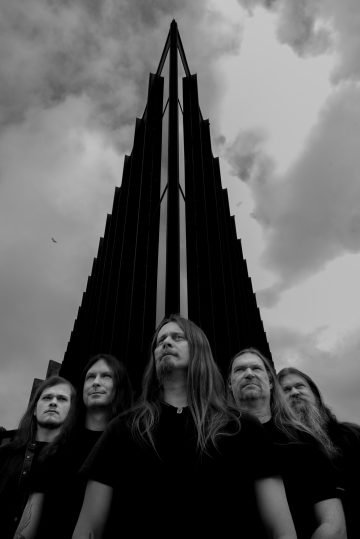
Photo by Christian Misje
Yeah, I think it goes back to when we started the band. I think it is tied to the music. I think without Enslaved I wouldn’t be that immersed in it. We had a death metal band before Enslaved and we were really drawn to some of the mythological aspects that we were using at the time, which wasn’t necessarily Northern mythology, but in that band we were referencing everything from Greek to Indian mythology. We knew there was something there, in terms of mythology, and when we started the band going in a black metal direction, because of the musical qualities of black metal, we knew that this direction with northern mythology was where we wanted to go. We were drawn to black metal because it meant everything. The nature of black metal wasn’t necessarily being gross, putting on corpse paint, and rocking out – I mean looking back some of it seems dumb now – but really it was something people really believed in as a way of life, and back then it really appealed to us because we wanted something that meant something to us 24/7. Then again, the Satanism didn’t really appeal to us too much, so we [co-founder Grutle Kjellson] were discussing, you know, ‘what are we into,’ and we both had the same experience coming from homes where our parents were both teachers, academics and had books of all kinds of mythologies and we both felt drawn to that, so that is how we started. From there on it was just, well, you read a book on the surface, like an introductory reference to something else and then, for example, the runes turn up and you read about those. For me a big turning point was discovering the work of Carl Jung in my late twenties. At the same time I was really interested in the modern occult movement of the seventies, especially the Chaos philosophers and their tradition from Timothy Leary to Aleister Crowley and seeing mythology through those eyes and mixing it up with the newest and most exciting science for me; psychology.
The way Carl Jung explains there is a need for a personal mythology, and the deeper you go into the psyche with that it becomes less personal. So the experience at the top level is very personal, like this is me, my personal preferences, but at the bottom level it becomes the world, in a sense, and we all experience this. You realize that mythologies are common expressions of the subconscious. They take it from something abstract and almost religious like and make it into something very hands on, concrete and very real and show that there are these pathways outside of regular time/space, there are natural laws that make sense and can guide us. That is why mythologies and these belief systems can benefit us.
Chance had it that I was born where I was born, it’s just natural that these myths would resonate with me, just as natural as maybe someone with a different personality type reads some Sanskrit about Hinduism and that makes sense to them. I think that is why we see Norwegians go to India and have a religious experience and the other way around, with someone coming to Norway and feeling close to Norse mythology. It’s all variations on the same theme; that larger world consciousness turned into personal mythology.
What’s been really inspiring, especially after working with Einar [Selvik] of Wardruna is realizing what a global phenomena it is. Even as you work on a more specialized aspect of it, like we do, it is connected to a global phenomena.
Let’s talk about the global aspect and paganism, you have said before that paganism is not racist, and indeed we are all pagan, we all come from a pagan past, no matter who you are and where you come from. In many ways that common ancestral reality unites us. Here in the United States though, you see neo-Nazis using the Odal rune, which kills me, I mean I have that rune on my wedding ring.
IIt is sad.
It is very sad, especially since this is something that, even as it is part of our personal mythology, is also indicative of the greater aspects of the collective global unconsciousness. Can you speak to that, and how you respond to this development.
I think what we are seeing is sort of like a pendulum thing, or a reaction to certain prior actions. It’s happening especially in the US, but the same thing is happening in Europe. It’s a reaction to the sort of globalism that happened in the nineties. People were so attracted to this idea of a sort of global way of thinking about things that was sort of equally destructive, I think, and now you see why it is destructive, because this is what it leads to. It leads to so much insecurity, so much panic, so much alienation and loneliness and it paves the way for people to go into these counter-intellectual, counter-human relations, to a separatist way of thinking. I think that when people now, rightfully so, criticize the right, they don’t look at the roots, and think about criticizing what happened with the left and globalism, and how that paved the way for this.
And I get it – we can’t ignore the events of the Second World War, very ugly gruesome time, especially the time leading up to it, with extreme nationalism and finger pointing at specific groups. At the same time, you can’t say ‘there should be no nations, no culture, no history,’ we aren’t built for that. Going back to the mythology, we need that mythological connection to understand this chaos that is interhuman relations, society, all of that stuff. Without the mythology and the history, the rootedness, it becomes a constant state of disorientation, and that is what we are seeing now. Now people are overdoing it the other way and instead of connecting with who they are, they are attacking everybody else.
There has also been an obvious effect on black metal, to where any artist with even a smidgen of problematic behavior will get you shut down in the US, and here Taake immediately comes to mind. What happened to him with his entire US tour being cancelled was sort of shocking to me, especially as someone who equates censoring or protesting heavy metal with the satanic panic of the 80s and 90s. I feel like things have gone too far in that regard. I’d like to get your take on that, if you comfortable talking about it.
Yeah, I think there are ways he could have handled that original episode more eloquently
You are referring to 10 years ago when he painted the swastika on his chest?
Yeah, yeah and if you do that you know that is going to get you in trouble. So I didn’t feel sorry for the guy. I mean, he’s my friend, he’s a brilliant artist, but if you put your hand in the crocodile you can’t really complain about being bitten.
Then again, there is no dialogue these days, everything is so black and white, and this really highlights the problem. He doesn’t actually have a chance because, I mean, one of the main problems is the lack of nuance in some media. I mean one of the outlets that is totally condemning him, and I won’t mention any names, but the same outlet actually had a story, and I couldn’t believe it, at first I thought it was fake, but they had a story on us last year and they basically said ‘it’s too good to be true that this band Enslaved doesn’t have any stains or bad things in their history, does anyone have any dirt that they can give us.’ And of course nobody had, but it just shows the attitude. But then there is the other side just blaming it all on Antifa, as if nothing happened in the first place. Why is there no sort of analytic voice that says ‘ok, this happened and then this happened…’ what about some way of bringing together both so that we have a way of moving forward? Because the metal scene does have some history of having some dialogue.
I remember, especially toward the end of the 90s when there were these bands with a pretty right-wing, brown stain, agenda and they actually did end up being ostracized enough that they went off and had to create their own NSBM scene. I think that proved a point and nobody gave in and started being apologetic about the nature of extreme metal, but at the same time they were very firm and said we do not want this to be a part of the scene.
I think with a band like Taake, I get it that people are still offended by his antics back then, but then if you look at the connections with his band and the kind of bands that they are related to and how the scene views them that should be proof that these are not Nazi guys. But they are not given a chance to do something useful about it and I think what seems like a victory for Antifa, is quite the opposite. You can see what is happening on the forums and every time this happens it turns people off and you are sort of opening the gates just a little bit to let that whole NSBM thing back into the scene.
Absolutely, I mean I’m liberal, I’m left, but that whole thing with Taake just made me like ‘fuck Antifa, fuck them,’ so certainly I had that reaction. I think the thing is with metalheads is that most of us are generally decent people, I mean look at the folks at this festival, it’s diverse and there are no problems and people are just here to enjoy some metal together, but ultimately metalheads don’t like being told what to do, think, or listen to, we can make up our own minds.
Exactly.
I want to ask you about your work with Einar Selvik. You’ve recorded a couple of projects with him, Skuggsjá and now Hugsjá, how did that come about?
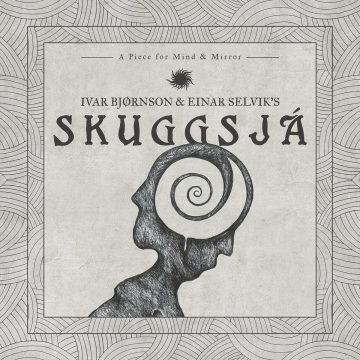 Strike of good luck back in 2013. I hadn’t seen Einar in seven or eight years. He used to be part of the Bergen metal scene in the 90s and then he moved to the other side of Norway. Then I heard some rumors that he was starting up this new project; Wardruna. I saw a little bit here and there and it seemed really appealing, it had this imagery and looked a lot like where Enslaved was going as well, you know with the runes. Then I got a call if I would meet with Einar and if we would be interested in writing something for the anniversary of the Norwegian constitution. We were like ‘yeah,’ but we are also like ‘you guys have to be aware we are representatives of what is an alternative art form in Norway and we are going to have to be allowed to criticize stuff,’ and they were like ‘yes, that is why we are asking.’ It was very open minded of them. The two main focuses of this anniversary was freedom of speech and women’s rights, and we represented the freedom of speech part. Then it just clicked, we did the concert, it turned into an album and decided that this can’t be it and decided to do another album. Now we have a record company [By Norse] together.
Strike of good luck back in 2013. I hadn’t seen Einar in seven or eight years. He used to be part of the Bergen metal scene in the 90s and then he moved to the other side of Norway. Then I heard some rumors that he was starting up this new project; Wardruna. I saw a little bit here and there and it seemed really appealing, it had this imagery and looked a lot like where Enslaved was going as well, you know with the runes. Then I got a call if I would meet with Einar and if we would be interested in writing something for the anniversary of the Norwegian constitution. We were like ‘yeah,’ but we are also like ‘you guys have to be aware we are representatives of what is an alternative art form in Norway and we are going to have to be allowed to criticize stuff,’ and they were like ‘yes, that is why we are asking.’ It was very open minded of them. The two main focuses of this anniversary was freedom of speech and women’s rights, and we represented the freedom of speech part. Then it just clicked, we did the concert, it turned into an album and decided that this can’t be it and decided to do another album. Now we have a record company [By Norse] together.
Let’s talk about your most recent collaboration with Einar, Hugsjá; tell me about the inspiration behind that. It’s a bit different, it’s quieter, more mellow, it’s relaxing actually. It’s a very chill album. It feels like a shift from the past work.
Absolutely. The first record, Skuggsjá, was commissioned to be Enslaved plus Wardruna, so it had to be very sonically big, very loud. So when we decided to do the second one we were like ‘fuck man, we can do whatever we want now.’ The first thing we wanted to do was peel away the whole big band thing, and let it be a little bit more direct and closer to our hearts and we wanted to tell the story of the Norwegian coastline. The first one is bigger, it’s Norway’s history, this one was focused on the population of this stretch of land along the coastline. It’s a small story, it’s a more personal story. It’s about individuals and the desire to discover and go out and find new land. We decided to make it more mellow and make it more of a four or five piece setup. We do lots of concerts and we did four smaller shows with just acoustics and piano and there was something about that. Einar and me are both involved with maximalism with Wardruna and Enslaved, and to be able to get together and do this sort of minimalistic project is kind of liberating.
I read somewhere that you enlisted some academics to help you with exploring the subject matter of the album, what can you tell me about that?
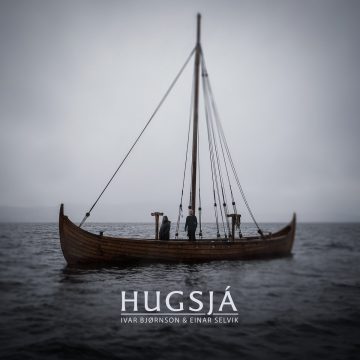 Yeah, Einar is very connected with many academics in the Nordic countries as well as outside. In the US there are academics in Seattle, the University in Boulder that he is in constant dialogue with because of his work in Wardruna, so we were in contact with them. In particular there was Bergsveinn Birgisson, who wrote the book “The Black Viking.” When people ask if there are any books to read to understand the Hugsjá project, we tell them to read that. The surface story of the book is about a black guy who becomes a Viking, but there are so many other things about it as well, like the story of the populating of the coastline and the transition from the Bronze Age up to the Viking Age. So yeah, this guy is part of the team and when we play concerts in Norway he travels with us, and sometimes does debates and panels before the concert. Last year we had them on stage and had him tell the historical background of songs. There was something about that setting that I really enjoyed. It’s really different from my day job in Enslaved. Going from the sonic train of Enslaved to Hugsjá with an acoustic guitar and a professor addressing the audience in between songs, I really love it.
Yeah, Einar is very connected with many academics in the Nordic countries as well as outside. In the US there are academics in Seattle, the University in Boulder that he is in constant dialogue with because of his work in Wardruna, so we were in contact with them. In particular there was Bergsveinn Birgisson, who wrote the book “The Black Viking.” When people ask if there are any books to read to understand the Hugsjá project, we tell them to read that. The surface story of the book is about a black guy who becomes a Viking, but there are so many other things about it as well, like the story of the populating of the coastline and the transition from the Bronze Age up to the Viking Age. So yeah, this guy is part of the team and when we play concerts in Norway he travels with us, and sometimes does debates and panels before the concert. Last year we had them on stage and had him tell the historical background of songs. There was something about that setting that I really enjoyed. It’s really different from my day job in Enslaved. Going from the sonic train of Enslaved to Hugsjá with an acoustic guitar and a professor addressing the audience in between songs, I really love it.
Jason B: What is it like to live in a country that actually recognizes metal, you guys are tapped to do this commission to honor the Norwegian constitution, and Enslaved has won the Norwegian equivalent of the Grammys, whereas in America, other than outliers like Metallica, it’s such a subculture here still. How is it to feel rewarded in a culture that appreciates you for what you do?
That’s a very good question, and it deserves for us to think through it. It’s hard to imagine, I think in the US, okay Mastodon, they have sort of sneaked their way into the Grammys, but to not have any sort of recognition from the public eye…it’s really strange. Not that having recognition from the public…oh man, it’s sort of a double edge sword. If I was a young black metal enthusiast, I’m now a middle aged black metal enthusiast, but there might a connection between Norway having such an innovative black metal past and how it was initially viewed, and it is a past tense thing, because what is happening in Norway today it certainly doesn’t have anything to do with cutting edge black metal. We are a bunch of old farty bands, and some of us are trying to develop something new, and trying new things, and some bands are even purifying the old form somewhat, but there is a lot of has been-ish qualities to the Norwegian black metal scene and some of the acceptance might be owed to that fact. That acceptance is sort of contradictory to its nature, but it’s also why some of the more interesting and insane, in a positive sense, black metal is coming out of territories where there is absolutely no recognition. So I would say that it’s very rewarding in a sort of past tense to feel that you worked so hard for so many years and now you are getting rewarded. It wasn’t like that during the 90s. Then you were getting beat up, literally. I was always sort of a sturdy Viking guy, but I was a very young kid back then and I got the shit beat out of me by adults and ended up in the ER a couple of times with a split skull and stuff like that because that is how afraid they were of Satanism and that really did something for the creative edge. Now we are past that, but it is killing whatever new art is coming. So maybe that could be comfort for American metal artists that you may feel shitty, but it’s probably good for the art.
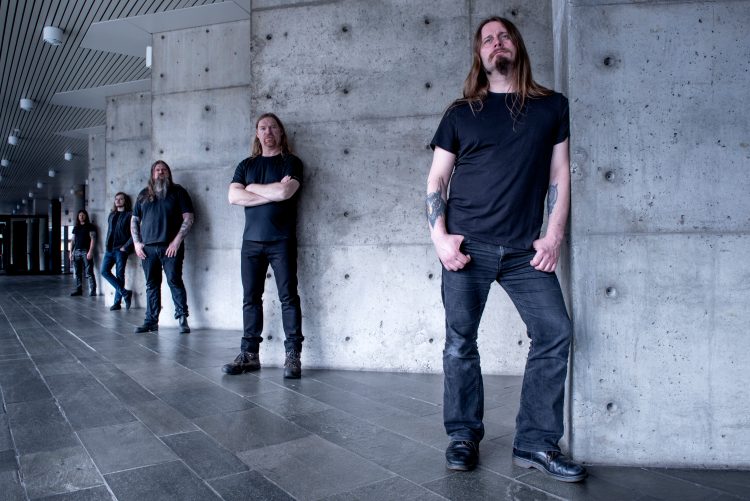
Photo by Christian Misje
I want to return to Norse paganism for a minute. Are you a theist, or do you see it as a psychological construct, or is it somewhere in between?
I think it’s a little of both. It’s such an endless loop. I do believe in independent existence of concepts outside of what we label as just the normal world. Then again, I do believe that our consciousness is capable of, I don’t know if creating is the right word for it, I don’t know if there is a right word, but I think that some of these things can be birthed, if you will, from thought.
Another pagan concept I want to ask about is Fate. In a previous interview you gave you said that you had a fixed amount of time and fixed amount of space to create. I might be misreading this, but I took that as a tip of the hat to the concept of Fate, to Wyrd. Is that correct, or do you believe we have free will?
I absolutely believe in Fate, but it is a little bit troublesome because of the concept of time. Things have already happened. It’s our perception of time that things are moving forward like moving through a room, and so my death would be that exit over there. Behind me the door I came though is birth and I am moving through the room. But it is equally possible that we would experience everything happening at once, at the same time. Some people with what we would call mental disorders have trouble functioning in society because they approximate this experience. They do not experience things sequentially. But most of us are not made that way. Connecting it back to Fate, I do believe it is written, but I also believe we are able to sort of influence the path. It’s a constant play between the script and the acting, so to speak. There are many versions of the script written and the way you go through it will make changes. I think, going back to the occult, I think that might be the ultimate reward for someone who connects with that, to influence their own way though life, to influence their Fate, if nothing else to make suggestions for changes to the final script.
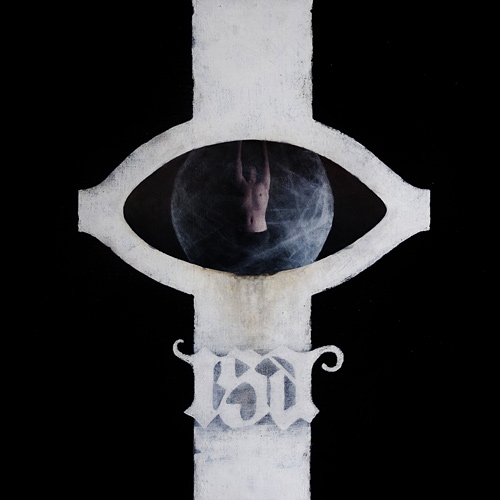
The last question I wanted to ask you about something that for some reason I can’t get past and that is the song “Isa.” For me that rune is the heaviest rune that there is.
Yes, it’s very different from the other ones.
Yeah, it’s heavy and every time I meditate on it, it’s, you know, stasis, ice. But that song, it’s uplifting, melodic, almost pop song for you guys and I always wonder about the juxtaposition between that rune that song, because it is so contradictory in my brain, but I love it because it’s so contradictory in my brain.
Yeah, it’s the most successful song we have in commercial terms. It’s a homage in a way. Something about the rune and working with the rune kept pointing back to the roots of heavy metal. It’s a simple riff with the notion that some things are not meant to change. It’s a song that is very different from all the other Enslaved songs. It doesn’t aim to do anything different, or change anything. It has the verse chorus, verse chorus structure, and that’s a reflection on that rune. Some things, and I keep coming back to remind myself of that rune, because it’s so easy to get lost in all the hallways of complexity of change, development, evolution, etc. but there are things at the core that need to just stay as they are, and that’s what happened with that song…and there is a girl walking past with an “Isa” t-shirt, I’m not kidding, look.
We both stop and laugh at the appearance of a girl walking through the hall in an Enslaved Isa t-shirt.
How did that happen?
Fate, Wyrd man.
What would Carl Jung say?
Exactly. I can’t think of a better way to end than on that.

